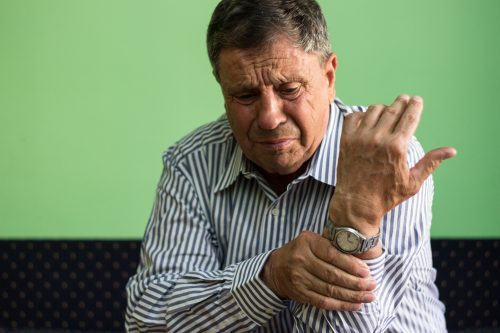
Flares in rheumatoid arthritis (RA) are associated with worse disease activity, quality of life, and radiographic progression, and evidence shows that even RA patients with low disease activity (LDA) still experience these episodes.
Eligible participants were those taking disease-modifying antirheumatic drugs and who had a stable 28-joint count Disease Activity Score (DAS28) < 3.2. Researchers collected clinical (DAS28) functional (Health Assessment Questionnaire–Disability Index [HAQ-DI], EQ-5D, Functional Assessment of Chronic Illness Therapy Fatigue scale [FACIT-F], Medical Outcomes Study Short Form-36 (SF-36]), serum biomarkers (multibiomarker disease activity [MBDA] score, calprotectin, CXCL10), and imaging data at baseline and every three months for one year. An increase in DAS28 compared with baseline of > 1.2, or > 0.6 if concurrent DAS28 ≥ 3.2 was considered a flare. The study included 152 patients.
https://twitter.com/Orthopedics_Bio/status/1036687150916329479
During the study period, 30% of patients (n = 46) had a flare. Of patients who were in remission at the start of the study, 25% (n = 24) had a flare. In unadjusted and multivariate analyses, HAQ-DI was associated with higher risk of flares (unadjusted hazard ratio [HR], 1.82 [95% CI 1.20-2.72]; adjusted HR, 1.76 [95% CI 1.05-2.93]). EQ-5D was correlated with lower risk of flare (HR, 0.20 [95% CI 0.07-0.57]). Only one-third of flares were associated with increased biomarkers. Patients with flares had significantly worse outcomes after one year (HAQ-DI, EQ-5D, FACIT-F, SF-36, and radiographic progression).
New: What signs predict a flare in rheumatoid arthritis? https://t.co/dXfkTEyk2i via @medivizor #Rheum
— Medivizor (@medivizor) October 3, 2018
“It is possible that a flare event is not solely the result of direct synovial inflammation but may be driven by other pathways, for example chronification of pain due to central sensitization and abnormal regulatory mechanisms. This heterogeneity may partly explain why identifying predictors of flare is challenging,” the researchers wrote.
The study authors concluded that “the occurrence of a flare is hard to predict, but undeniably associated with worse clinical outcomes at 12 months.”
Men with Rheumatoid Arthritis Struggle to Cope
Therapeutic Interventions to Prevent and Delay Rheumatoid Arthritis Onset
On the Defense: Diagnosing Rheumatoid Arthritis Before It Starts
Sources: The Journal of Rheumatology, Rheumatology News







 © 2025 Mashup Media, LLC, a Formedics Property. All Rights Reserved.
© 2025 Mashup Media, LLC, a Formedics Property. All Rights Reserved.